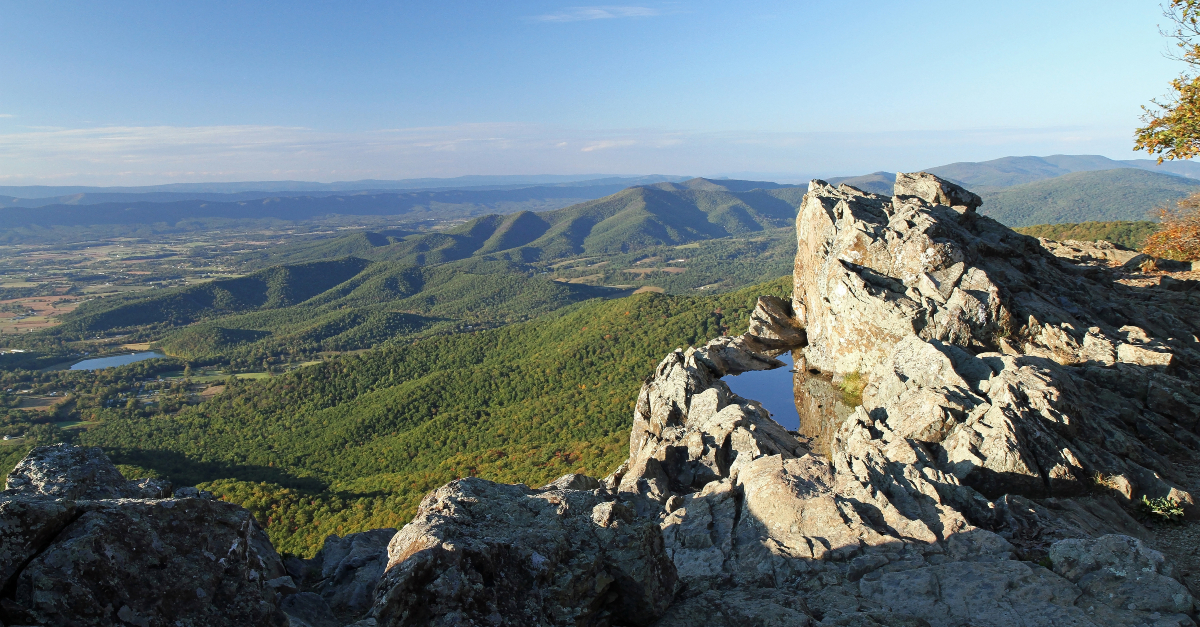Greta Thunberg may not necessarily be a household name, but her face and characteristic braided pigtails are certainly recognizable to most people by now.
Thunberg is the 17-year-old Swedish environmentalist who made headlines last year when she gave a scathing speech to the United Nations in New York. Thunberg and many like her are not lacking in passion when they speak of such things as clean air, reduced emissions, ozone layer depletion, greenhouse gases, global warming, and deforestation.
Though I admire the zeal with which Thunberg and her counterparts speak, and the sincerity that many environmentalists display, I find that my biblical worldview seldom leads me to show the same degree of concern for the environment as they do. And I'm guessing there are other Christians who aren't exactly famous for their activism related to our physical environment.
But maybe it’s time...not only for me, but for the church collectively, to rethink our position on environmental issues—and to do so from a theological viewpoint.
My purpose here is to explore possible reasons why Christians may be silent on issues related to the environment, and offer a possible correction.
Do All Christians Champion Environmentalism?
If I may confess, I have a knee-jerk reaction almost every time I encounter an environmentalist. My default thought takes me to Romans 1:26 where the Bible says, “They exchanged the truth of God for a lie and worshipped and served the creature rather than the Creator.”
Now, I didn’t say that my reaction was correct or even biblical.
This passage has nothing to do with environmental issues, and the occasion for its writing is nothing related to our discussion. Rightly or wrongly, my default is to associate one’s activism with worship of the creation rather than the Creator. I suspect that this may play a small role in why some Christians may feel little responsibility for our physical world. We simply don’t want to be perceived as those who worship, or at least place a higher value on, the physical world than what is right.
But this is not the main reason why Christians may avoid or neglect the environmental dilemma. I suggest that there is a more subtle reason why I feel there are so few Christian voices in the environmental debates unfolding around the world, and it’s not difficult to trace this underlying cause back to the pulpit.
From the very earliest days of the church, there has been a competing influence called Gnosticism that has sought to infiltrate the church. Gnosticism is the teaching that the spiritual world is good and conversely all matter is an illusion or evil. Despite the fact that most of us know little to nothing about the heretical teaching of Gnosticism, our theological views have likely been shaped to some degree by Gnosticism without us even knowing it.
Let me give you an example to see if this sounds familiar to you.
 Photo Credit: ©GettyImages/kieferpix
Photo Credit: ©GettyImages/kieferpix
Gnosticism's Influence on the Christian View of Our Physical World
If you have been part of the church at all in your life, doubtless you have heard the story of salvation articulated something like this. Mankind is in trouble because our father, Adam, sinned and consequently turned us all into sinners. Because of our sinfulness, we need to be saved in order that we might be able to go to heaven when we die.
Almost any Christian in the West will articulate the gospel message in similar terms as this.
Who among us would dare contradict the proposal that Jesus died in order that he might take as many people as possible to heaven one day? In many Christian circles, we are explicitly taught that when Christ returns, we will shed the bondage of our physical bodies to inherit the glorious spiritual world of heaven. Whether we recognize it or not, we see our physical world, which includes our physical bodies, as something we will one day escape when we are set free.
However, nothing could be farther from the biblical truth than this. This is the fruit from the seed of Gnosticism which has germinated for centuries in the soil of careless biblical exposition, and its taste is not only bitter but deadly.
There seems to be this underlying Christian belief, unconscious though it may be, that the physical world will one day be discarded and annihilated when it is used up and no longer needed. Scripture passages which we’ve read out of context for generations (1 Corinthians 15:48-50; 2 Corinthians 4:16; 2 Peter 3:11-12) seem to support the erroneous theories of annihilation, but when studied faithfully and contextually, a different reality begins to emerge.
Our Physical World Is Not Disposable
This physical world that God created is not disposable as though it were an empty toothpaste tube that had outlived its usefulness. Much to the contrary, our world is the same physical world, which in the Creator’s estimation, was “very good” (Genesis 1:31), and though it now writhes under the curse of man’s rebellious heart, the Creator has not relinquished his good world to destruction.
If God is not concerned with his physical world, then the doctrine of resurrection makes no sense at all.
In fact, I have discovered that those who tend toward a more Gnostic view of creation and salvation have a hard time even now of reconciling the resurrection of Christ and his followers with the notion of going to heaven when a person dies.
 Photo Credit: ©Sparrowstock
Photo Credit: ©Sparrowstock
4 Clues to God's Commitment to His Physical World
Consider these clues that undergird the Creator’s commitment to his physical world.
1. The new creation includes the world we live in. “In the beginning God created the heavens and the earth” (Genesis 1:1). If God’s eternal purpose was merely to fill heaven (a spiritual, disembodied realm) with souls, then why not start with that? If the physical world has no part in God’s eternal plan, then how do you explain the Bible’s conclusion when John reveals, “I saw a new heaven and a new earth...and I saw a holy city, new Jerusalem coming down out of heaven...?” The last chapters of the Bible describe the world as God intended it to be from the beginning. And clearly, the new creation includes the world in which we now live.
2. The Creator is committed to restoration. So committed to his physical world that to restore and redeem it, he sent his Son to be born as a real man in a real body to live a real life and die a real death (Luke 2:7; Luke 23:33-49).
3. God resurrected the body of Christ. Maybe the greatest demonstration of the Creator’s commitment to his created world is the resurrection of Jesus from the dead (Luke 24). It was not merely the soul of Jesus that was resurrected—but his body as well. During the 40 days following the resurrection, Jesus publically modeled what a resurrected life would look like. He could be touched (Luke 24:39), he ate food (Luke 24:43), and he was recognized by those who knew him before his death.
4. Jesus ascends in physical form. Finally, consider Jesus’s ascension. When Jesus makes his kingly processional to return to his throne (Acts 1:9), he does not shed his physical body to do so. At this very moment, Jesus, who remains fully God and fully man, sits at the right hand of the Father (Colossians 3:1) and for all of eternity will never cease to be human.
 Photo Credit: ©Sparrowstock
Photo Credit: ©Sparrowstock
We Are Responsible for What God Cherishes
Time and space does not permit an in-depth defense of the glory of God as seen in his physical world, but one last piece of evidence will secure our conclusion and demand from Christ’s followers a more faithful stewardship of his good world.
In Romans 8, the Apostle Paul makes this profound statement when he says, “Creation itself will be set free from its slavery to corruption into the freedom of the glory of the children of God” (Romans 8:21).
This does not sound like a world doomed to annihilation to me! Paul continues, “...the whole creation groans and suffers the pains of childbirth together until now...even we ourselves groan within ourselves, waiting eagerly for our adoption as sons, the redemption of our body” (22-23).
All of creation will share in our redemption and restoration, and it, along with those redeemed by Christ, will one day be resurrected to new life in the same way Christ was raised on the first Easter morning.
So, I ask you, “Why should Christians be good stewards of the earth?” The answer, I hope, is obvious by now. If God intends to discard this world when it no longer serves his purpose in eternity, then it likely makes little difference how we use it and abuse it here. However, as we are reminded that God has created, redeemed, and already begun the resurrection of the dead physical realm (Colossians 1:18), we are no longer able to ignore our responsibility for what God, himself, cherishes.
This is our world and it always will be. Christ died not only to save our souls but our bodies—and this world as well. Christians should lead the way in matters of conservation and environmental care. The blood of Christ was the price paid to take back all that the enemy had stolen, and it is for this reason alone that Christians must steward what has been entrusted to us.
Practical Ways Christians Can Renew a Commitment to Our Environment
Recycle what you use and purchase products and goods packaged in recycled material.
Be mindful of how you use natural resources and avoid wasteful consumption.
Look for opportunities to work and serve in organizations and committees which champion environmental issues.
Christians must model what stewardship looks like without becoming idolatrous. Be willing to be the voice that honors and points to the Creator instead of worshipping his creation.
Photo Credit: ©Sparrowstock
Dr. Rick Kirby, along with his wife and children, lives in Anderson, South Carolina. Rick serves as a corporate chaplain in the upstate of South Carolina, in addition to shepherding micro-church movements, which he does in partnership with the Evangelical Free Church in America and the Creo Collective. Rick has written as a freelance writer for organizations such as The INJOY Group, InTouch Ministries, and Walk Through the Bible. Rick holds a Master of Divinity and Doctor of Ministry degree from Erskine Theological Seminary. Through the years, Rick’s family has been deeply engaged in discipling efforts globally in India, Romania, Brazil, Ecuador and most recently in Puerto Rico. Among the many things Rick enjoys are woodworking in his woodshop and roasting (and drinking) coffee. You can find other works by Kirby at www.rickkirby.org.